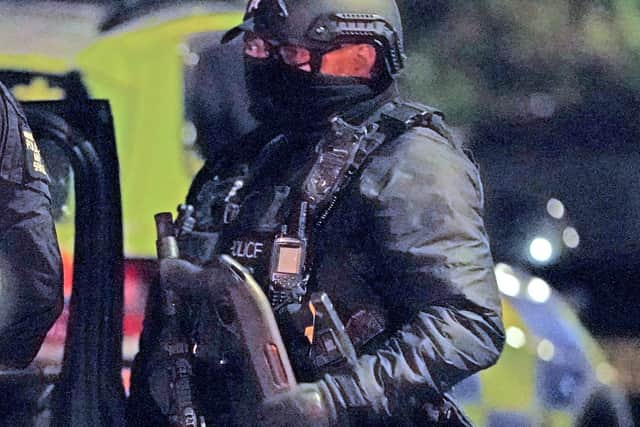Liverpool Women's Hospital explosion: Terrorism threat level increased to severe meaning attack is 'highly likely'
and live on Freeview channel 276
It is now listed as “severe”, which means an attack is “highly likely”.
The threat level had been lowered to “substantial” in February, meaning an attack is “likely”, after being raised to severe in November last year.
Advertisement
Hide AdAdvertisement
Hide AdThe Joint Terrorism Analysis Centre and MI5 are responsible for setting the international and domestic threat levels respectively, taking into account available intelligence, terrorist intentions and capability as well as potential timescales for attacks.
Speaking to broadcasters, Home Secretary Priti Patel said: “The Joint Terrorism Analysis Centre, Jtac, are now increasing the United Kingdom’s threat level from substantial to severe.
“And there’s a reason for that, and that reason is because what we saw yesterday is the second incident in a month.”
The car explosion outside a Liverpool hospital on Remembrance Sunday has been declared a terrorist attack by police.


Advertisement
Hide AdAdvertisement
Hide AdIt comes after Conservative MP for Southend West Sir David Amess died during a constituency surgery in Leigh-on-Sea in Essex on October 15.
Alleged terrorist Ali Harbi Ali, 25, is accused of murdering the MP and has also been charged with preparing acts of terrorism between May 1 2019 and September 28 this year.
Ms Patel said the “context” of there being two terrorist incidents in the space of a month was “really important” and while she could not expand “for obvious reasons”, she added: “I should just conclude my remarks by saying that our security and intelligence services prevent all sorts of acts, day in, day out.
“And of course, they understand the landscape, they see context, they see all sorts of things that keep our country safe and secure every single day and that work will continue.”
Advertisement
Hide AdAdvertisement
Hide AdCounter-terror police previously warned of the dangers of more people potentially becoming radicalised during the coronavirus lockdowns while spending more time online.
Although officers in charge of this probe have so far said the motive behind the attack is unclear.
Prime Minister Boris Johnson has said “the British people will never be cowed by terrorism” following the attack in Liverpool, adding: “We will never give in to those who seek to divide us with senseless acts of violence.”
A message from the Editor:Thank you for reading this article. We're more reliant on your support than ever as the shift in consumer habits brought about by coronavirus impacts our advertisers.
If you haven't already, please consider supporting our trusted, fact-checked journalism by taking out a digital subscription.
Comment Guidelines
National World encourages reader discussion on our stories. User feedback, insights and back-and-forth exchanges add a rich layer of context to reporting. Please review our Community Guidelines before commenting.